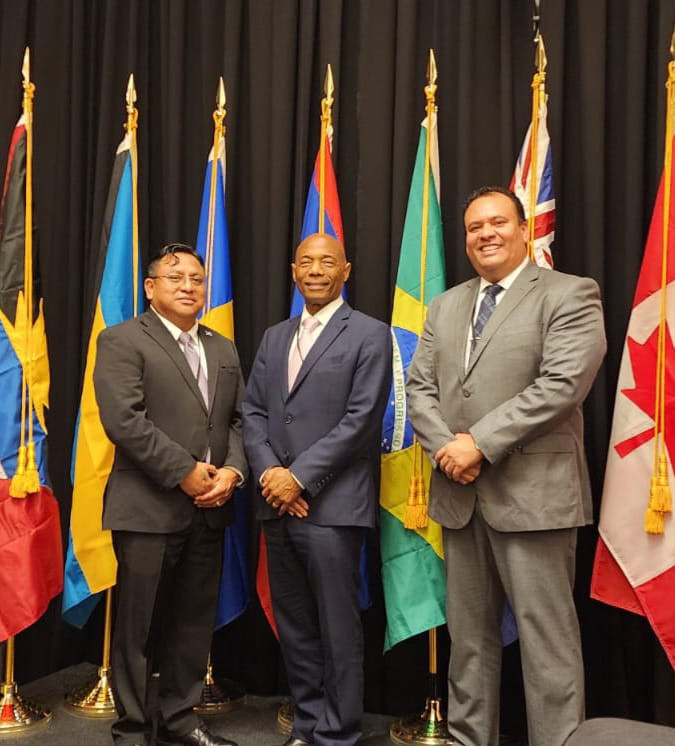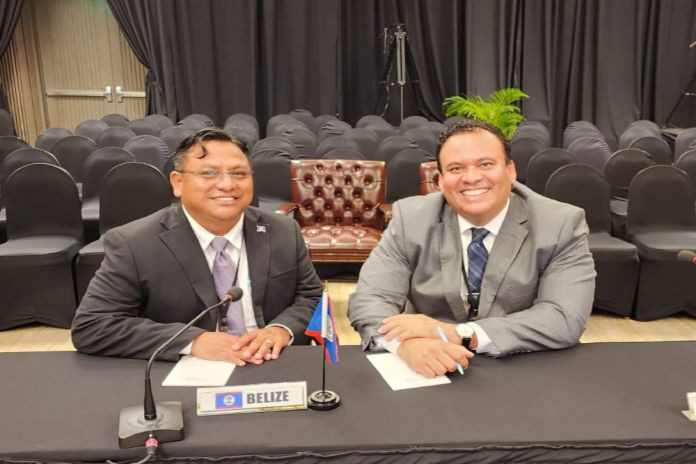By Government Press Office | BELIZE
BELMOPAN, Belize – Dr Osmond Martinez, chief executive officer in the ministry of economic development, and Valentino Shal, chief executive officer in the ministry of rural transformation, community development, labour, and local government, represented Belize at the Caribbean Development Bank’s (CDB) 53rd annual meeting of the board of governors in Saint Lucia.
The CEOs represented Belize as temporary alternate governor and temporary alternate director, respectively. The annual meeting is being held under the theme, “Marshalling Finance for Development: Access to Adequate, Affordable Financing.”
The meeting brings together the bank’s highest decision-making body and other high-level regional stakeholders for solution-based discussions on tackling the hurdles to accessing affordable finance necessary for driving economic growth and sustainability in the region.
CEO Dr Osmond Martinez delivered remarks during the session on behalf of the bank’s borrowing member countries. He highlighted the vulnerability of Caribbean economies and their actions in reducing debt burdens, prioritizing climate action, and instituting disaster risk reduction measures. Furthermore, he stressed the urgency of collective action and collaboration at the regional level in addressing common challenges.
Reflecting on the experience of Belize, with average annual losses of 4 percent of GDP to natural hazards, CEO Martinez challenged the bank to advance its effort to provide affordable finance, mobilize climate finance for loss and damage as negotiated at COP27, and provide direct support to borrowing members countries to develop comprehensive climate adaptation projects.

During the meeting of the board of directors, a new credit line was approved for the Development Finance Corporation for BZ$25 million to increase access to finance for small and micro enterprises. The board similarly approved a second replenishment of the cultural and creative industries innovation fund for US$1.8 million from which Belize has benefitted in the past.
An important strategic initiative of the CDB that was discussed at this year’s annual meeting is the need for a more suitable official development assistance and climate finance architecture. This includes moving away from the gross national income to measure and track member countries’ wealth, which influences allocations of official development assistance. This conventional measure of development can provide misleading signals about the health and stability of an economy, thereby restricting access to concessional finance which can slow the pace of economic development. The bank is proposing new tools to better capture vulnerability and resilience conditions in its member countries.
In response to borrowing members’ request, Dr Gene Leon, president of the CDB, committed to working with member countries to mobilize climate finance in a variety of ways, including pursuing climate finance, blended finance, and other forms of low-cost finance, and by deepening private sector engagement both as beneficiaries and partners.





